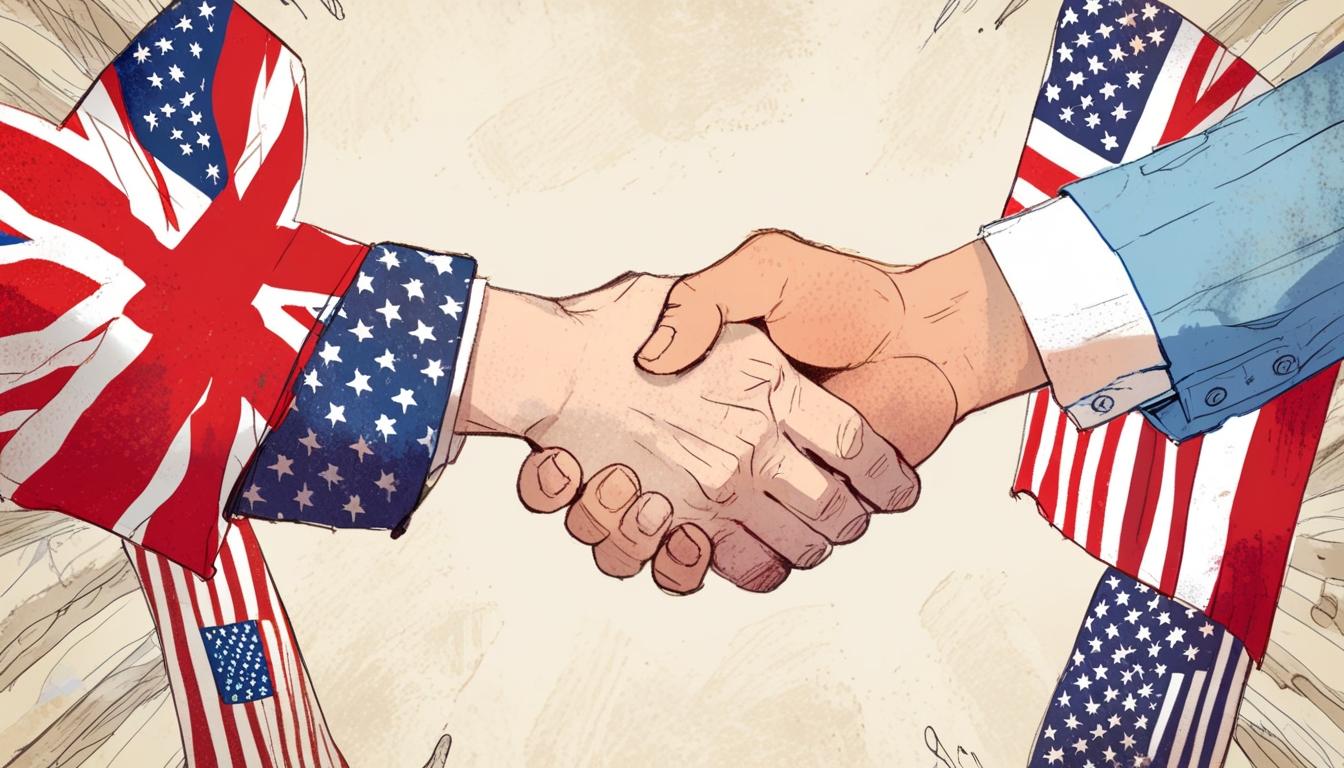Amidst a backdrop of anticipation and speculation, discussions regarding the newly announced trade agreement between the United States and the United Kingdom dominated the headlines. US President Donald Trump heralded the deal as “comprehensive”, a characterization met with scepticism from various quarters. The Independent notably dismissed it as “putting lipstick on a pig”, suggesting that the scope of the agreement falls considerably short of expectations for a robust free trade deal.
In reality, Prime Minister Keir Starmer’s negotiations yielded limited concessions, primarily focused on alleviating some of Trump’s sweeping tariffs. The BBC highlighted that the agreement merely reduces or reverses tariffs on select goods, rather than delivering the broad-based economic relief many had hoped for. Key agricultural concerns remain at the forefront of discussions, and the UK government has pledged not to compromise on domestic food standards, drawing a firm ‘red line’ against imports of hormone-treated beef and chlorinated chicken.
Despite this cautious optimism, farmers across Britain have responded with a mixed bag of sentiments. While some welcomed the commitment to uphold UK food standards, there was palpable concern regarding the removal of bioethanol targets, particularly as there is a significant shift in trade policy. This concern was echoed by Associated British Foods, whose Hull-based bioethanol plant now faces existential threats due to the introduction of substantial quotas for tariff-free US ethanol, which could destabilise the local market significantly.
The deal has yet to offer the clarity needed for the UK’s steel industry either. While the agreement aims to reduce the 25% tariffs on British steel exports initiated during the Trump administration, industry representatives are pressing for explicit timelines and terms. UK Steel’s Director of Trade and Economic Policy voiced concerns about the lack of clarity regarding supply chain conditions, further underlining the complexities inherent in these international negotiations.
These trade discussions unfolded alongside a noteworthy financial development, with the Bank of England announcing a reduction in interest rates to 4.25% from 4.5%. Governor Andrew Bailey hinted that further cuts could be on the horizon, although specifics remained vague. Economists expect this reduction to stimulate business activity; however, the broader economic landscape appears daunting. The Bank anticipates that ongoing global trade tensions could stifle growth in the UK over the next three years.
The fallout from a recent cyberattack on the Co-op has further compounded difficulties within the retail sector, as the company grapples with disrupted IT systems and dwindling supplies of essential goods. The head of the UK’s cyber security agency advised retailers against paying ransoms to hackers, emphasising the necessity for robust recovery plans in the face of such threats.
The trade deal's implications extend into the consumer sphere as well, with food giant Kraft Heinz urging its coffee suppliers to refrain from raising prices in response to Trump’s tariffs, thereby underscoring the complicated landscape US companies face amidst shifting trade policies.
Amid all these developments, the agricultural sector faces dire conditions, with the Environment Agency reporting that England has experienced its driest early spring in 69 years, prompting warnings of potential crop failures. The National Farmers' Union indicated that farmers have had to initiate irrigation earlier than usual, revealing the vulnerabilities that could be exacerbated by changing trade dynamics.
In a contrasting scenario, WeightWatchers has recently filed for bankruptcy, announcing its struggle to adapt to changing consumer preferences amidst a surge in weight loss injectables. The company’s move highlights broader shifts in the consumer health market, where traditional brands find it challenging to reconnect with younger demographics who are increasingly drawn to innovative health solutions.
With these interconnected narratives playing out on the international stage, one fact remains clear: the intricacies of trade agreements and their repercussions extend far beyond tariffs and quotas, influencing every aspect of the economy—from agricultural practices to consumer choices.
Reference Map
- Paragraph 1: [1]
- Paragraph 2: [1]
- Paragraph 3: [1], [2]
- Paragraph 4: [1], [4]
- Paragraph 5: [1], [5]
- Paragraph 6: [1]
- Paragraph 7: [1], [3]
- Paragraph 8: [1]
- Paragraph 9: [2]
- Paragraph 10: [1]
- Paragraph 11: [1]
- Paragraph 12: [1]
Source: Noah Wire Services
